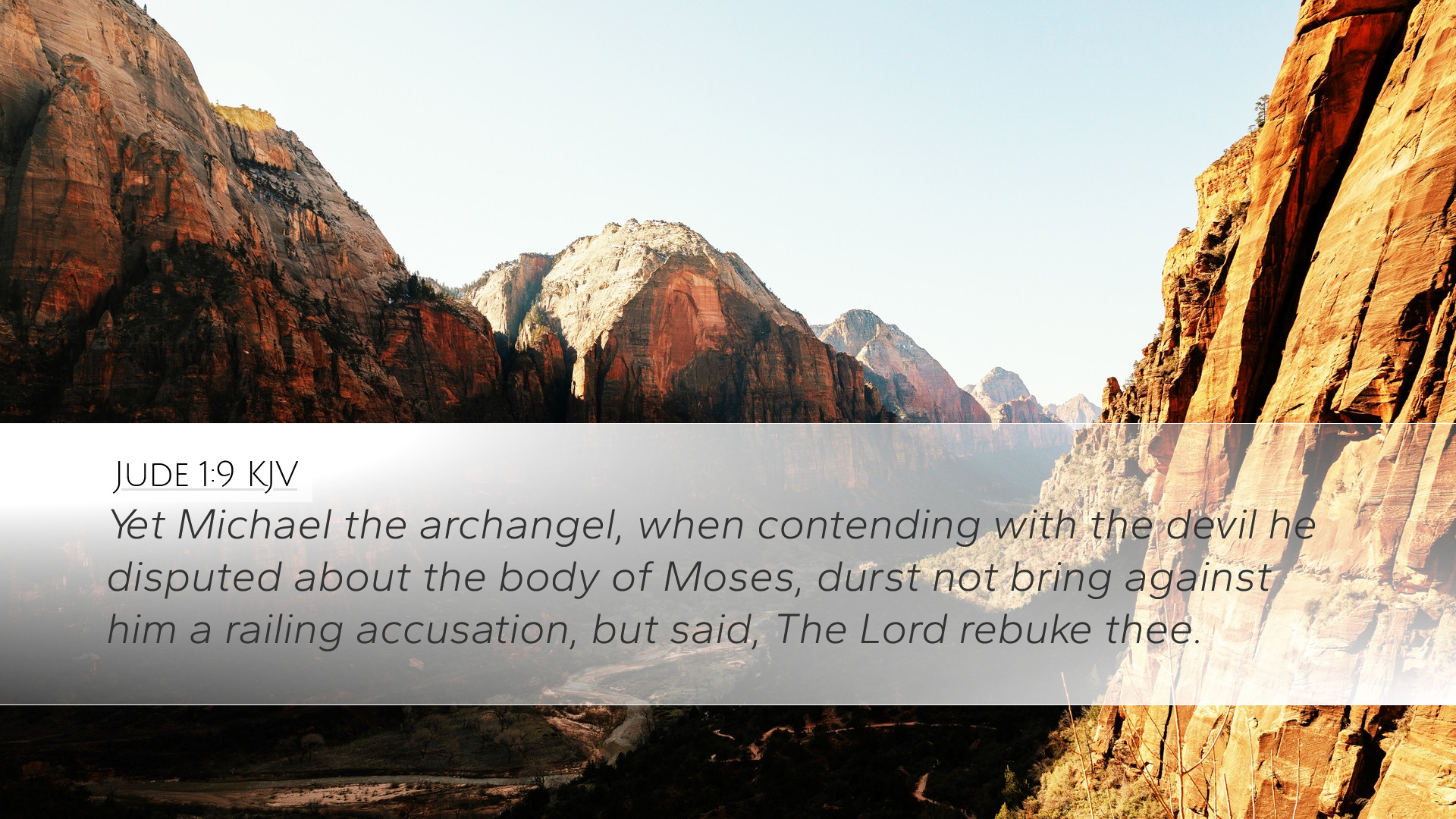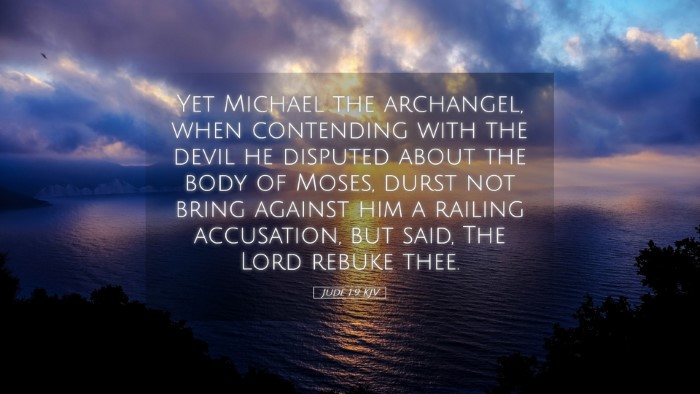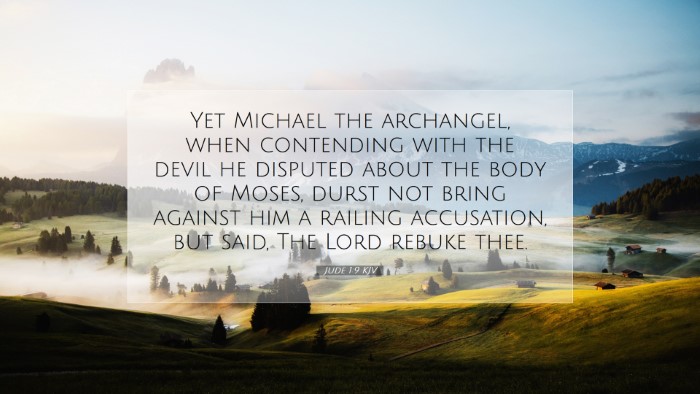Commentary on Jude 1:9
Jude 1:9 states: "Yet Michael the archangel, when he disputed with the devil and argued about the body of Moses, did not presume to pronounce against him a railing judgment, but said, 'The Lord rebuke you!'" This intriguing verse depicts a divine confrontation and invites deep theological reflection.
Contextual Overview
The Epistle of Jude is a brief yet powerful letter that addresses the dangers of false teachings and the importance of holding onto the faith. In verse 9, Jude introduces a specific event not found elsewhere in the canonical Scriptures, drawing from Jewish traditions that highlight the authority and role of Michael the archangel.
Michael the Archangel
Michael is referred to as an archangel, which suggests a high rank among the celestial beings. Matthew Henry emphasizes that Michael serves as a protector of the people of God, particularly in spiritual warfare against evil forces. In the context of Jude, Michael's interaction with the devil is emblematic of the struggle between divine authority and malicious opposition.
Role of Michael
- Defender of God’s People: Michael's name means "Who is like God?" reflecting his role as a divine warrior.
- Presence in Spiritual Battles: His encounter with the devil demonstrates his active engagement in the cosmic conflict.
The Dispute over Moses’ Body
The dispute concerning the body of Moses is rich with interpretative possibilities. Adam Clarke highlights that while the Scriptures tell of Moses' death (Deuteronomy 34:5-6), this narrative underscores God's authority over life and death. The story illustrates not only Michael's role as an intercessor but also the devil's attempt to lay claim over what belongs to God.
Theological Significance
- God’s Sovereignty: This confrontation signifies that all authority ultimately belongs to God, as Michael defers judgment to the Lord.
- Redemption and Resurrection: Moses, representing the Law, signifies that God retains control over the destinies of His servants even after death.
The Nature of Spiritual Authority
In the confrontation, we notice that even the archangel Michael refrains from speaking harshly. Instead, he appeals to the Lord to rebuke the devil. Albert Barnes notes that this exemplifies humility and the understanding of authority within the spiritual realm. Michael does not act independently; rather, he acknowledges the supremacy of God's power.
Implications for Believers
- Relying on Divine Authority: Believers are reminded that their defense comes from God, not merely their own efforts or abilities.
- Against False Teachings: Just as Michael contended with the devil over truth, Christians are called to contend for their faith without resorting to slander or judgmental attitudes.
Application for Ministry
In pastoral contexts, Jude 1:9 serves as a poignant lesson on approaching conflict with grace and reliance on God's authority. This verse encourages humility and reminds leaders that spiritual authority should not be wielded in a vengeful or presumptuous manner.
Guidance for Response
- Teach with Humility: Encourage congregations to address spiritual disputes by submitting to God's will.
- Encourage Prayerful Dependence: In confrontation, remind congregants that it is God who has the final say, and they should approach disputes with prayer and humility.
Conclusion
Jude 1:9 ultimately conveys a deeper understanding of spiritual authority, the roles of angels, and the importance of humility in engaging with evil. By viewing the narrative through the lens of divine sovereignty and Christian practice, pastors, students, theologians, and scholars can glean profound insights for personal faith and communal living. As we reflect on this passage, let us remember that our victory lies not in our own strength but in the Lord who rebukes evil on our behalf.


